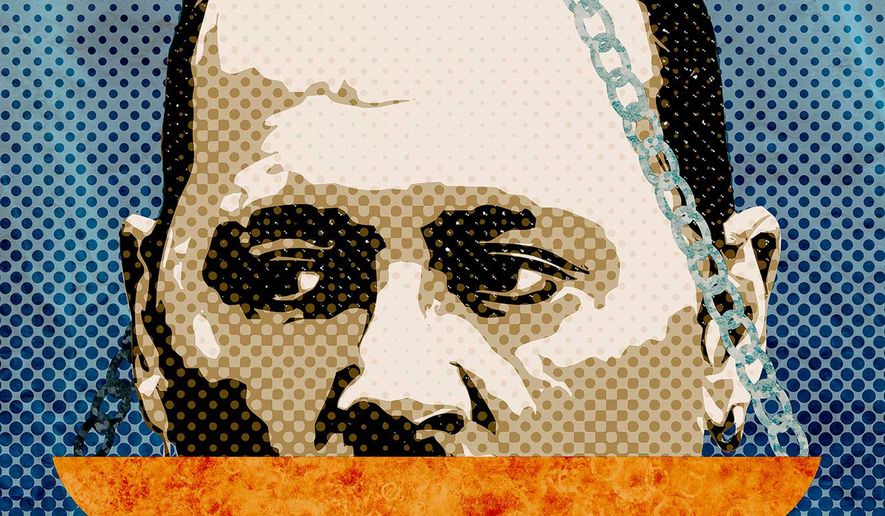OPINION:
There have been dozens of different takes on the social, cultural and historical significance of the jury verdicts in the Johnny Depp and Amber Heard trial.
Here’s one more: While the trial gave us a peek into the very messy lives of two people, it otherwise has no larger meaning to our society whatsoever. It does, however, provide a few durable lessons for those who paid attention.
Anyone who watched or heard any part of even a summary of the proceedings had a sense that Mr. Depp was getting the better of it almost from the first day. Ms. Heard, who initiated the whole contretemps by publishing a column in 2018 advocating for congressional reauthorization of the Violence Against Women Act, in which she indicated that she had been a victim of physical and sexual abuse, was in quicksand with the judge, jury and public opinion from the outset.
In the end, the jury concluded that, on balance, Mr. Depp was the more truthful person in the courtroom and the more wronged person in the relationship. They awarded him $15 million in total ($10 million in compensatory damages and $5 million in punitive damages). Again, if you watched the trial, that was not a surprise. His legal team consistently tangled Ms. Heard in evidence that was problematic and testimony that turned out to be less than completely accurate.
The jury did award Ms. Heard $2 million in compensatory damages in her countersuit for defamation, concluding that one of Mr. Depp’s lawyers went a bit overboard.
In the wake of the jury’s verdicts, some have solemnly and mournfully concluded that abused women will never receive justice again in the United States; that the jury’s failure to agree in total with Ms. Heard was some sort of societal bellwether.
That’s nonsense. The jury heard the testimony and examined the evidence and concluded that one of the participants was more truthful than the other. Juries all over the nation do that every day.
Some have concluded that the jury verdicts signal the death of the “#MeToo” movement. Maybe. Maybe not. It is probably a little early to make that call. We can predict with some confidence that as long as males and females exist in physical proximity to one another, especially in places where authority and power are unevenly distributed, there will likely be sexual harassment. It is a consequence of original sin that has been with us since homo sapiens first appeared.
What useful lessons can we draw from the trial?
First, courtrooms are a lot like emergency rooms; by the time you wind up there, something has gone seriously wrong. Unlike emergency rooms, however, the judicial process can only very rarely remedy whatever pathologies may have brought a person to it.
Second, the American judicial system is an impressive mechanism for grinding away at facts, evidence, and testimony and determining who did what to whom. There is none better on the planet. However, it is limited. It ultimately does just two things: It incarcerates people, and it determines who should get what in disputes between rival claimants. That’s about it.
At the end of the trial, Mr. Depp said, “The jury gave me my life back.” That’s nonsense, too. The jury concluded that he was the most truthful person (at least in court) among the two broken people presented to them. They gave him money. No one can give him his life back, whatever that might mean. Truthfully, he didn’t really seem to have that much of a life beforehand.
That’s the third lesson from the trial. The judicial system does not “give people their lives back” or anything resembling that. The system occasionally remedies what has gone wrong between people. It is a forum to adjudicate disputes, and, every once in a while, to administer justice. Judges, juries and especially lawyers do not provide salvation.
Like visits to the emergency room, no one who has turned their lives over to the legal process emerges thinking that it was a happy experience. No one looks forward to a second trip to an emergency room or a courtroom.
That is the final and most essential lesson in the saga of Mr. Depp and Ms. Heard: By the time you wind up in a courtroom, your life has already gone sideways. If you can, you should avoid the judicial system. Despite its considerable abilities, in most cases, it can’t solve whatever might be wrong with your life. Only you can do that.
• Michael McKenna, a columnist for The Washington Times, is the president of MWR Strategies. He was most recently a deputy assistant to the president and deputy director of the Office of Legislative Affairs at the White House.




Please read our comment policy before commenting.